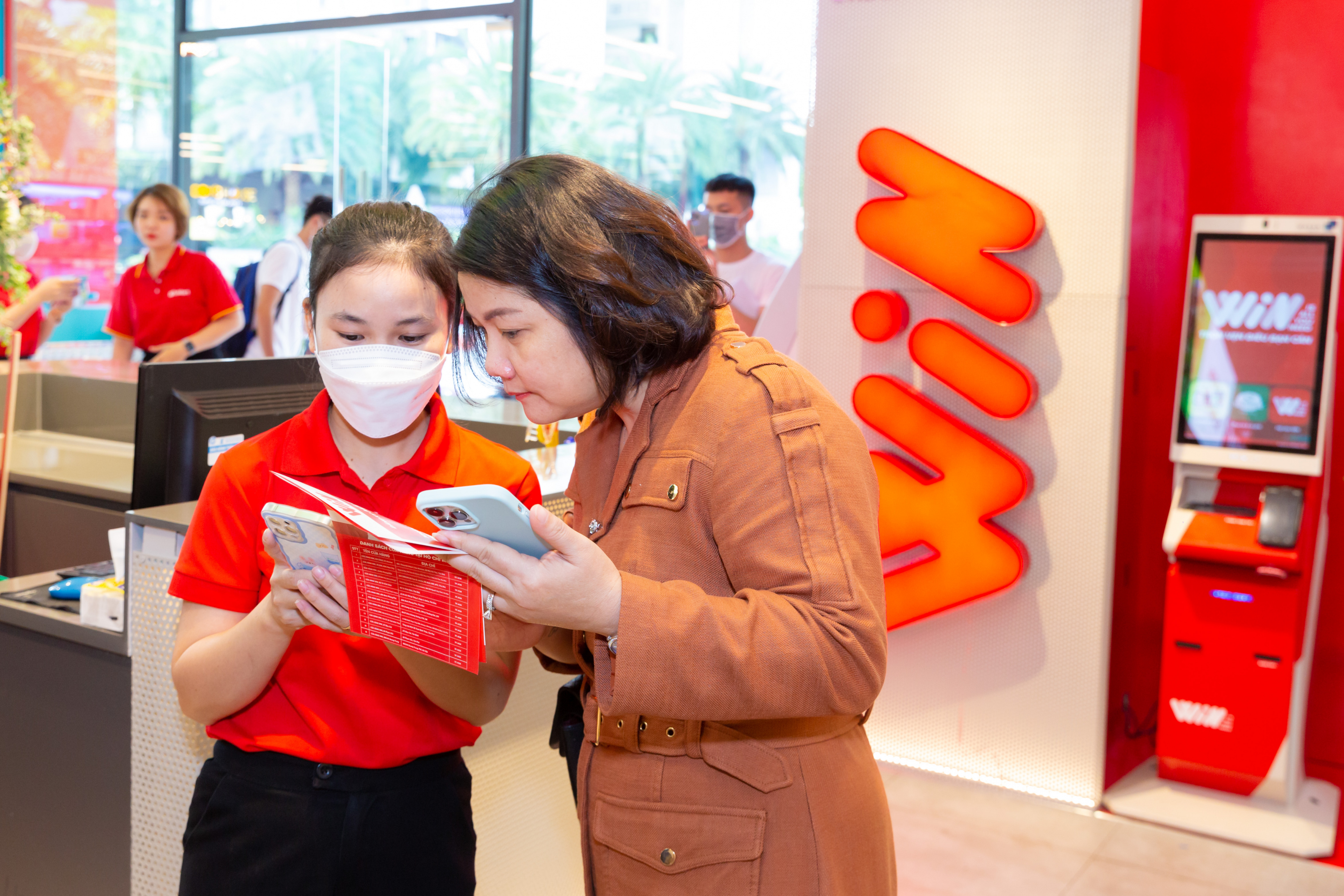A “Consumer of things” ecosystem
Chairman of the Board of Directors of Masan Group Nguyen Dang Quang said, "At Masan, we believe that technology will be the element that alters the consumption market, and we perceive it as one of the core priorities that must be emphasised."
However, Masan does not see technology as a standalone business model but rather as a potent tool for personalising product services in order to provide customers with a greater experience.
Quang said, "The approach of accomplishing development, generating profits, and bettering the material and spiritual lives of the Vietnamese people is to use technology to meet the vast unmet demand."

Integrating offline-to-online
Masan's ability to compete on the online platform is greatly enhanced by the enormous scope of its offline channel. This is Masan's two-pronged approach; on the one hand, retaining a market-leading position in terms of offline points of sale, and on the other hand, sustaining the pace of online integration while predicting new consumption patterns.
Danny Le, CEO of Masan Group said, "Currently, e-commerce in Vietnam is not concentrated on the basic demands of customers, such as the periodicity of their daily purchases of food and beverages. This portal caters only to non-essential, high-value requirements such as cosmetics, apparel, and vacations. To encourage customers to make internet shopping a regular practice, it is crucial to prioritise meeting their fundamental requirements. This is what Masan aspires to achieve."
Vietnam's urbanisation trend and demographic features – which focus on the younger population – contribute significantly to the acceleration of contemporary retail. In 2021, Euromonitor predicted that by 2025, the two biggest age groups would be Millennials (aged 25-40), accounting for 57 per cent, and Gen Z (aged 24 and younger), accounting for 26 per cent.
These groups require easy access to goods and services, conform to contemporary consumer trends, and are prepared to pay a premium for exceptional experiences. Moreover, Vietnamese consumers are fast catching up with global purchase patterns, particularly the move toward digitalisation.
In addition to partnering with Lazada, WinCommece offers multi-channel sales via shopping super apps, the WinMart.com website, and phone orders with a three-hour delivery window.
The benefit of offline sales sites helps Masan handle the logistical challenges and reduce delivery times, while the size and power of being a consumer goods producer enable Masan to offer competitively priced items to the market.
Masan spent $65 million in April to acquire 25 per cent of the shares of Trusting Social Company – a fintech firm that offers AI and machine learning services integrated into Masan's retail platform – in order to enhance its capacity to comprehend its clients.

According to CEO of Masan Group, these technologies not only save money and enhance labour efficiency, but they also guarantee that newly released merchandise and services have a better rate of success and provide each customer a unique experience.
Masan Group disclosed its purchasing power map during its 2022 Annual General Meeting. Big Data and AI have segmented the Vietnam map plane into 100m x 100m squares. The algorithm then determines the income level, buying power, and product design for each square of a relatively tiny region.
There are approximately 33 million such cells containing dozens of updated and analysed data criteria that assist business leaders in making decisions regarding the location of the selling point, the appropriate product category, and the quantity of goods that must be prepared for each store.
"With over 300,000 general trade partners, Masan seeks to provide them with the finest options. Our objective is to service 100 million customers, which is impossible on Masan's platform. The best method to reach 100 million people is to provide our existing digital solutions to our conventional business partners. This is also how Alibaba has achieved success in China, by giving traditional businesses the power of technology," Le said.
In addition to its dominant position in the fast-moving consumer goods and retail markets, Masan is also a market leader in numerous industries, including branded chilled meat (MEATDeli), food and beverage chain (Phuc Long), and telecom operators (Reddi – the first Mobile Virtual Network Operator in Vietnam). Techcombank, a subsidiary of Masan, is now one of the most lucrative private banks in Vietnam and Masan's next objective is to provide entertainment utilities on digital platforms.
The group's mission, according to a Masan spokesman, is to change from a purely commercial hub to an all-in-one venue, merging offline and online, providing for consumer requirements, and contributing to up to 80 per cent of consumer spending in Vietnam.
At this retailer's mini-marts, users can shop for necessities, deposit and withdraw cash, and purchase telecommunications packages, all while buying takeout tea, coffee and nutritious meals.
Incorporating WinMart+, Techcombank, Phuc Long, Reddi, and Dr.Win healthcare kiosks, Masan launched 27 WIN retail outlets inside the WINLife ecosystem at the start of September. WIN shops provide greater amenities than WinMart+ stores, including a self-checkout kiosk in addition to a cashier-staffed checkout.
Masan is now building the two parallel chains of WIN and WinMart+. The offerings at WinMart+ will continue to be built nationally while WIN shops will be created at sites that match all of the requirements established by the organisation.
Currently, WinCommerce is the retail system in Vietnam with the highest income and consumption, including the WinMart and Winmart+ supermarket chains.
In the first half of 2022, WinMart's sales reached over $195 million, WinMart+ exceeded $390 million, and the company grew to own over 3,000 supermarkets and mini-supermarkets.
Masan's market share in fish sauce, soy sauce, and chilli sauce is between 66 and 71 per cent, making it the king of consumer products in Vietnam.



